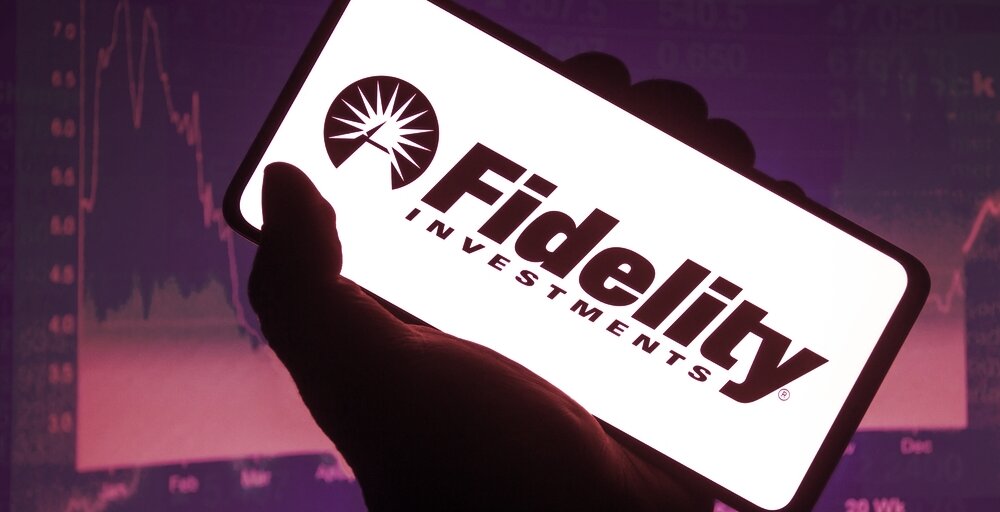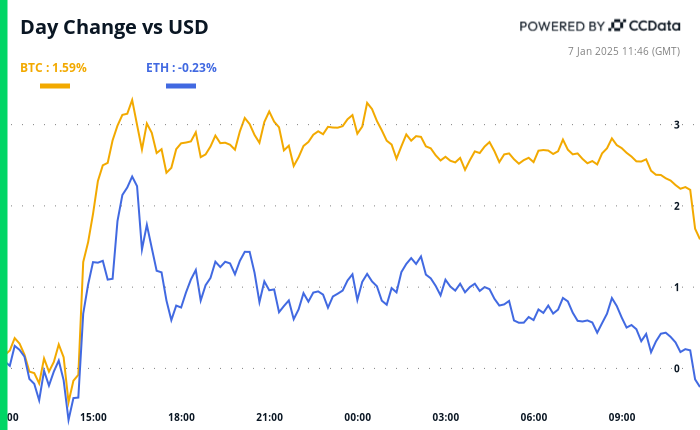Fidelity already has $5 million invested in a new Ethereum index fund, according to registration documents filed today with the U.S. Securities and Exchange Commission.
The asset manager, which has $4.5 trillion on its books, registered its Fidelity Ethereum Index Fund on Tuesday, but said in its SEC filing that the first sale took place on September 26.
Last month, Fidelity was rumored to be considering offering Bitcoin trading to its more than 34 million retail customers, although the news didn’t come from Fidelity directly. Galaxy Digital CEO Mike Novogratz spilled the beans at New York’s SALT forum.
“A bird told me, a little bird in my ear, told me Fidelity is going to shift its retail customers into crypto soon enough,” he said at the event. “I hope that bird is right.”
Fidelity has also been busy working on a crypto exchange, EDX Markets. The company teamed up with Charles Schwab, Citadel Securities and other backers to form a consortium in hopes that the new exchange will “facilitate a more efficient, secure and cost-effective process for trading digital assets” a Fidelity spokesperson told Decrypt in an email last month.
The new Fidelity Ethereum Index Fund enters an increasingly crowded field with other prominent Ethereum funds.
As recently as September, asset manager Bitwise—with $1 billion under its belt—said in an SEC filing that its Ethereum Fund had $25 million worth of assets under management. Bitwise’s Ethereum index fund has been around a lot longer, launched by the San Francisco company in 2018.
The main difference between index funds, like Fidelity and Bitwise’s, and exchange-traded funds (ETFs), like the Grayscale Ethereum Trust (ETHE), is how they’re traded. Index funds, like Fidelity’s new offering, can only be purchased after markets have closed and at set rates.
ETFs can be bought and sold throughout the day like stocks. There’s also the matter of the minimum investment required to participate.
Index funds tend to have a higher minimum, although the $50,000 minimum on the new Fidelity fund and $25,000 minimum at ETHE and Bitwise put them largely out of range for retail investors, especially since all of these Ethereum funds are also limited to accredited investors.
Stay on top of crypto news, get daily updates in your inbox.
Read More: decrypt.co









 Bitcoin
Bitcoin  Ethereum
Ethereum  XRP
XRP  Tether
Tether  Solana
Solana  Dogecoin
Dogecoin  USDC
USDC  Cardano
Cardano  Lido Staked Ether
Lido Staked Ether  TRON
TRON  Avalanche
Avalanche  Sui
Sui  Wrapped stETH
Wrapped stETH  Chainlink
Chainlink  Toncoin
Toncoin  Shiba Inu
Shiba Inu  Stellar
Stellar  Wrapped Bitcoin
Wrapped Bitcoin  Hedera
Hedera  Polkadot
Polkadot  WETH
WETH  Bitcoin Cash
Bitcoin Cash  Uniswap
Uniswap  Pepe
Pepe  Hyperliquid
Hyperliquid  LEO Token
LEO Token  Litecoin
Litecoin  Wrapped eETH
Wrapped eETH  NEAR Protocol
NEAR Protocol  Ethena USDe
Ethena USDe  USDS
USDS  Aptos
Aptos  Internet Computer
Internet Computer  Aave
Aave  Render
Render  Mantle
Mantle  Bittensor
Bittensor  Cronos
Cronos  POL (ex-MATIC)
POL (ex-MATIC)  Ethereum Classic
Ethereum Classic  Artificial Superintelligence Alliance
Artificial Superintelligence Alliance  WhiteBIT Coin
WhiteBIT Coin  Virtuals Protocol
Virtuals Protocol  Arbitrum
Arbitrum  MANTRA
MANTRA  Tokenize Xchange
Tokenize Xchange  Monero
Monero